Makroudh: The Sweet Symbol of Kairouan’s Heritage
All You Need to Know About Makroudh
Table Of Content
If you’ve ever been to Kairouan, chances are you’ve encountered its iconic sweet, fried delicacy: Makroudh. It’s everywhere—displayed in the windows of bustling shops where vendors enthusiastically call out for you to try a piece, offered in homes and guest houses as a warm gesture of hospitality, or served in cafés alongside a rich cup of Arabic coffee or mint tea.
Makroudh is an essential part of any visit to Kairouan. For us Tunisians, it’s more than just a dessert. It’s the taste of Kairouan, a must-have treat whenever we’re there, and the perfect gift to bring home to share with loved ones, especially during Ramadan.
What Is Makroudh?
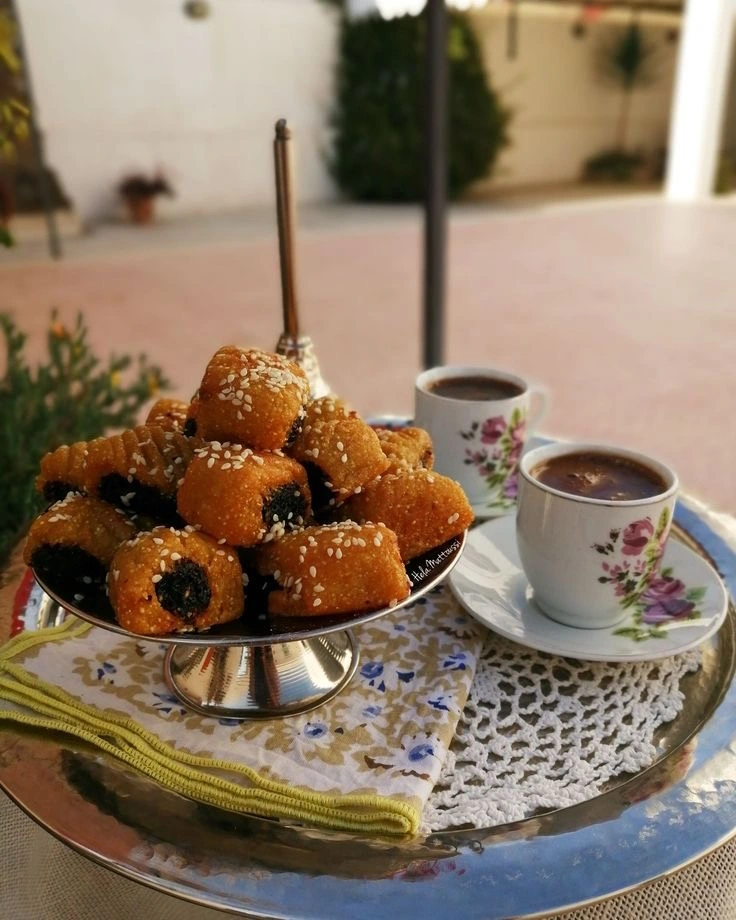
Makroudh is a popular Maghrebian pastry, most famous in Tunisia and Algeria, but it’s also found in cities across Morocco, Libya, and even Malta. While the ingredients and styles vary between countries, in Tunisia, Makroudh is particularly associated with Kairouan, where it is most renowned.
The name Makroudh comes from classical Arabic, inspired by its characteristic rhombus shape. This small semolina cake is spiced with cinnamon, orange blossom water, cloves, turmeric, or saffron and stuffed with fillings such as dates, hazelnuts, or almonds.
Traditionally, Makroudh is deep-fried in oil and then soaked in honey or sugar syrup. It’s a delightful blend of crispy, soft, and chewy textures, with a sweet filling that melts in your mouth.
In Tunisia, the typical recipe involves dough stuffed with dates and fried. However, there are other varieties catering to different tastes, such as baked versions, those made with flaxseeds, or ones filled with figs, offering lighter alternatives. Vendors in Kairouan take great pride in preparing and selling freshly made Makroudh daily, often ensuring it is served warm. While Makroudh can remain fresh for up to a month, artisans prioritize offering it at peak freshness to showcase its quality and craftsmanship.
Why Is Makroudh Associated with Kairouan?
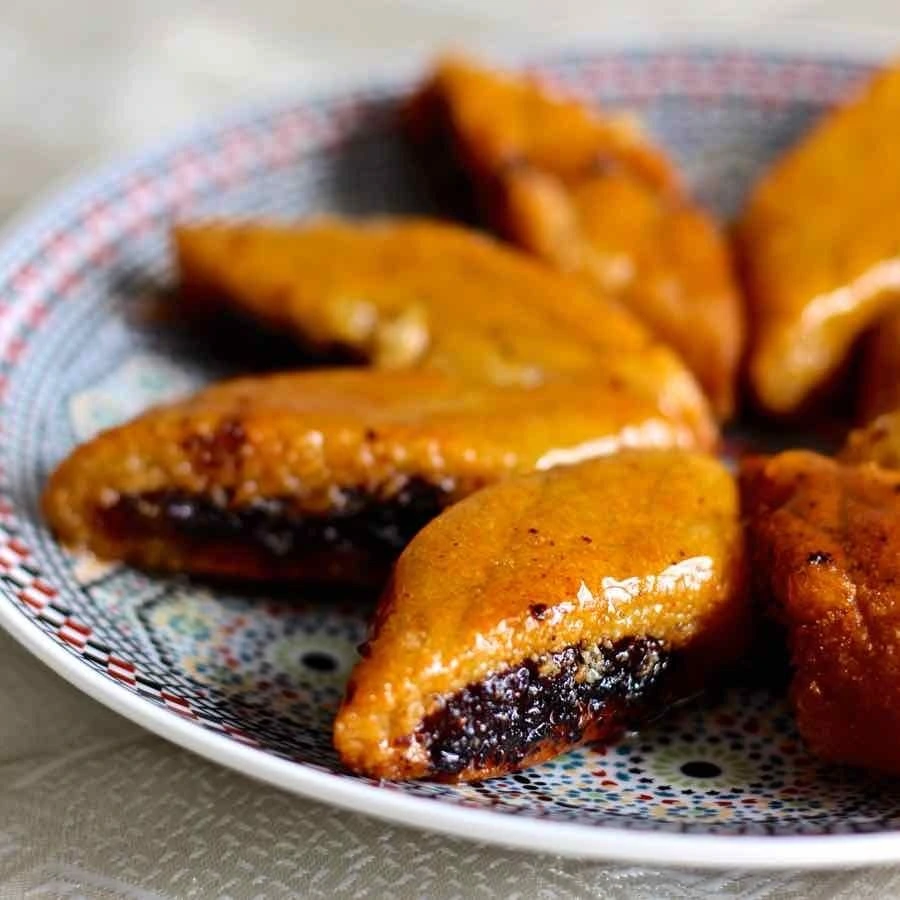
As you explore Kairouan—or perhaps as a Tunisian who stocks up on Makroudh whenever visiting the city—you might wonder: why is this sweet so strongly associated with Kairouan?
How did a dessert made from semolina dough and dates become deeply connected to the identity of this historical and spiritual city?
The answer lies in two key aspects:
The Unique Location of the City
As a crossroads between different regions and a centre of religious and cultural radiance, Kairouan flourished as the Aghlabid dynasty’s capital. The city benefited from a flow of essential ingredients from all directions:
- Olive oil from coastal regions and Al-‘Ala.
- Grains and saffron from the north.
- Dates and pistachios from the Jerid region in the south.
- Sugarcane from fertile farms surrounding Kairouan.
This unique location made Kairouan the perfect place for Makroudh and other culinary crafts to thrive.
The History of the Craft
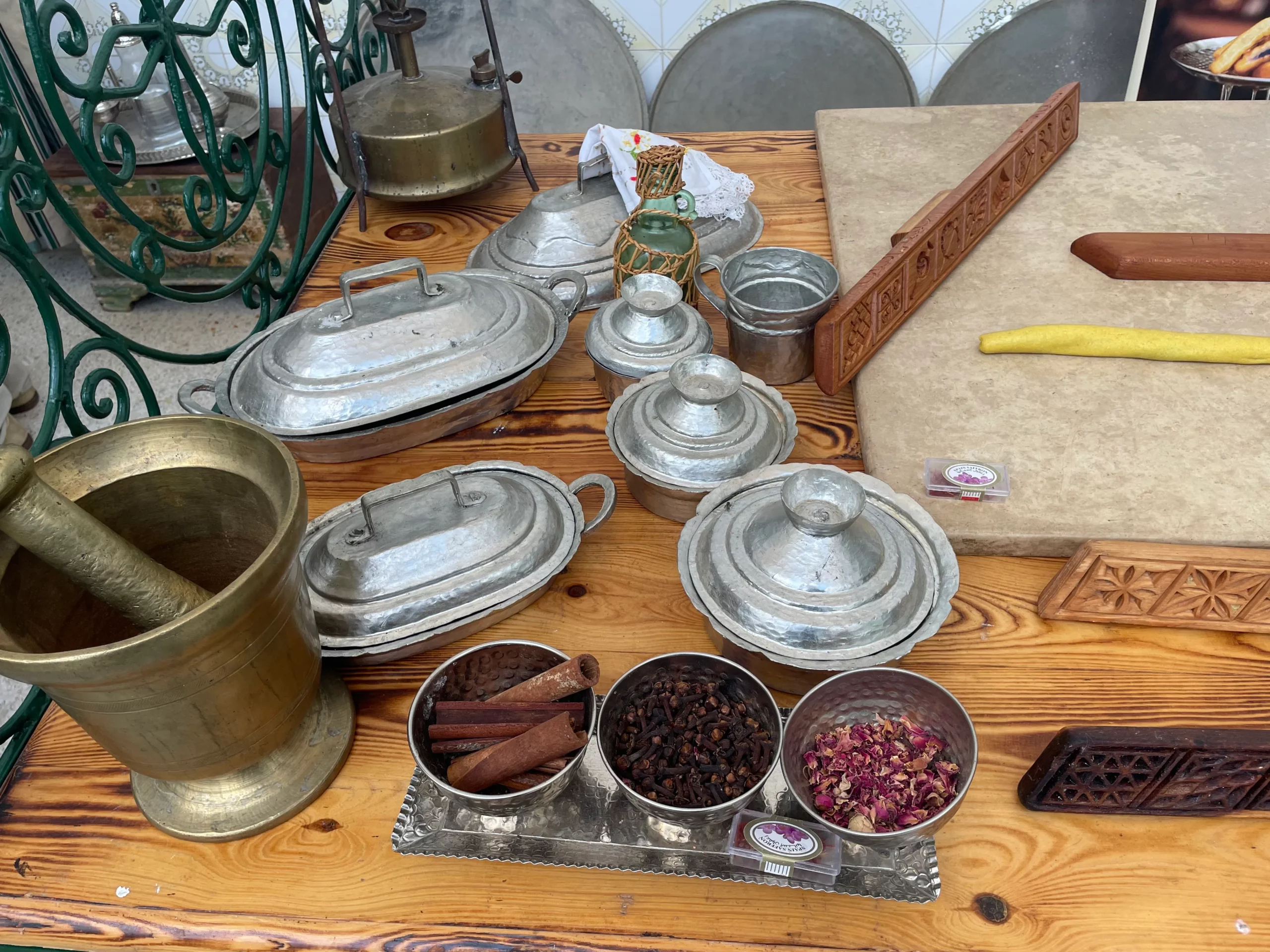
According to local oral traditions, the origins of Makroudh date back to the Aghlabid dynasty (800–909). It is even referred to as “the Aghlabid sweet”. Written sources suggest its history extends as far back as the construction of Simat (the main street in front of the Okba Mosque), now known as General Susini Avenue. This street was historically lined with shops and traditional industries, including Makroudh-making, copperware, and leatherwork.
Today, many traditional Makroudh stamps—used to create designs on the pastry—are inspired by the Mihrab (prayer niche in the qiblah wall) of the Okba Mosque, linking the treat to the city’s rich religious and architectural heritage.
Famous Addresses: Where to Buy Makroudh in Kairouan
If you’re interested in purchasing authentic Makroudh, we recommend visiting the renowned artisan families in Kairouan who have preserved this craft for generations. Some popular options include:
For a truly immersive experience, consider visiting a traditional Kairouani house where you can learn the art of Makroudh-making first-hand. Hilma El Barraq, the granddaughter of Sheikh El Barraq, offers a unique opportunity to participate in hands-on classes. Not only will you create your own Makroudh to take home, but you’ll also explore the rich traditions of Kairouan’s culinary and architectural heritage.
If you ever find yourself in Kairouan, don’t miss the chance to explore Makroudh, visit these renowned artisans, and perhaps participate in a unique culinary experience. Share your feedback—we’d love to hear about your journey!
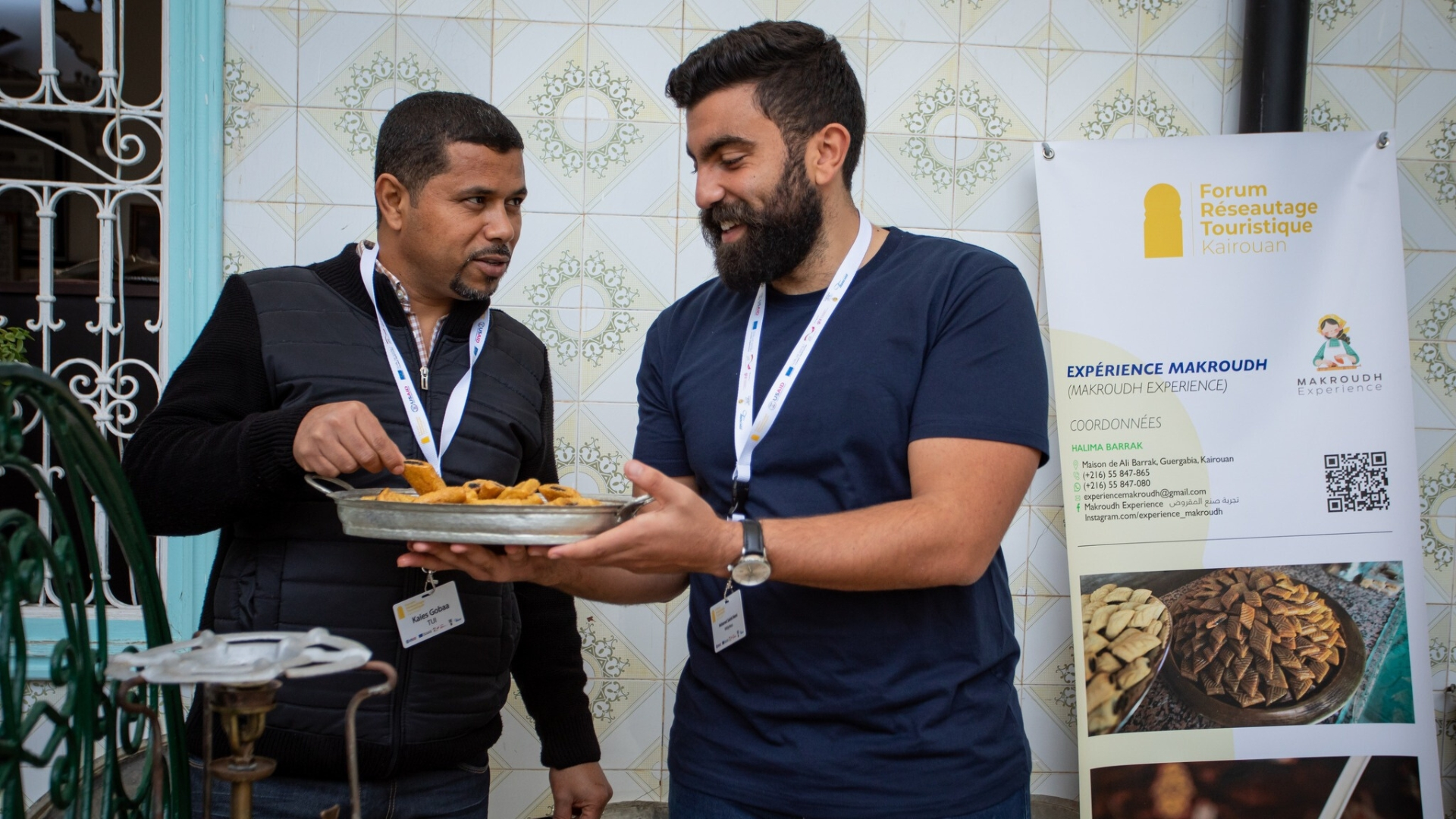



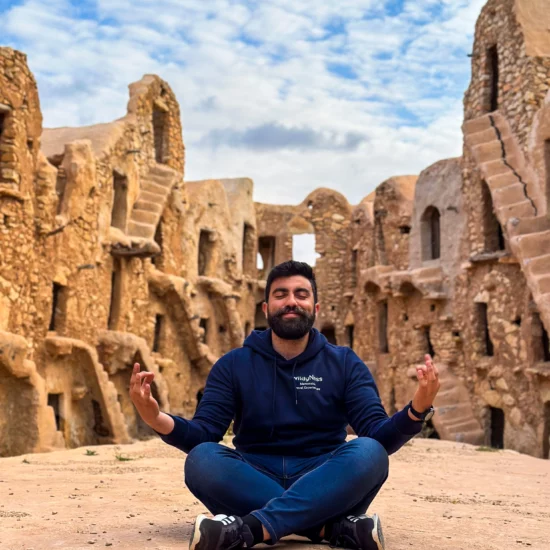
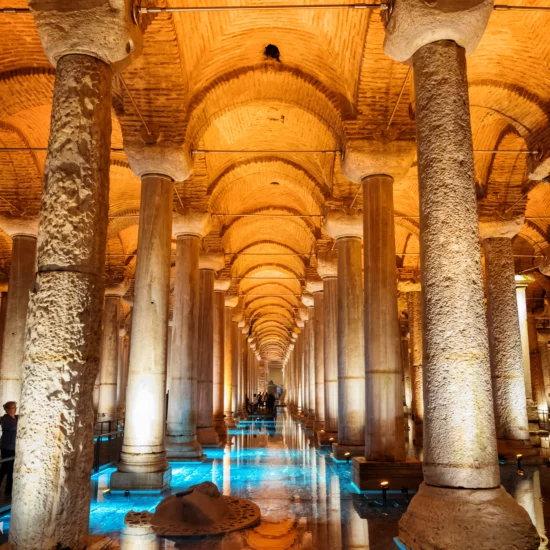
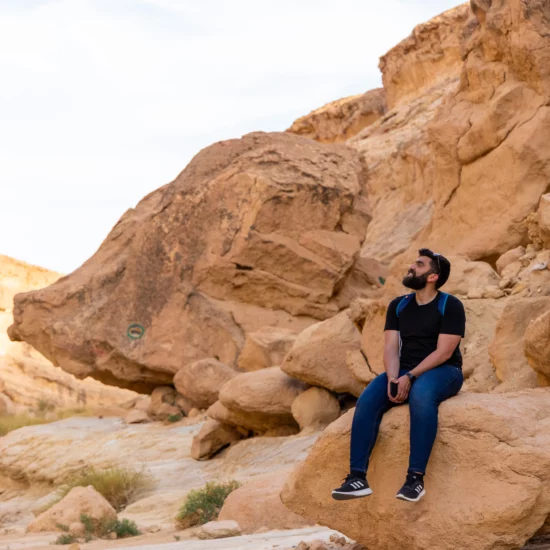
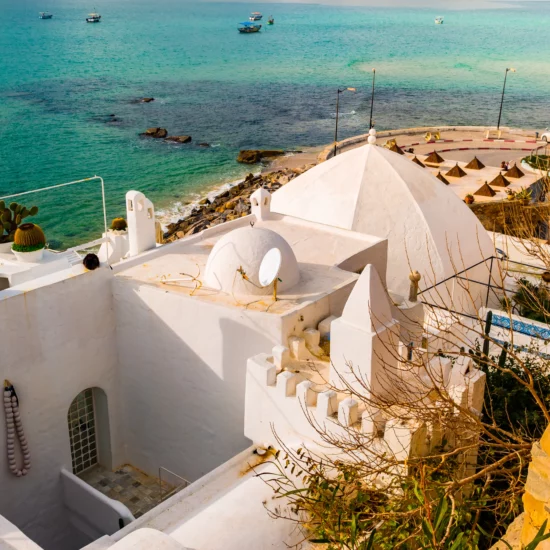

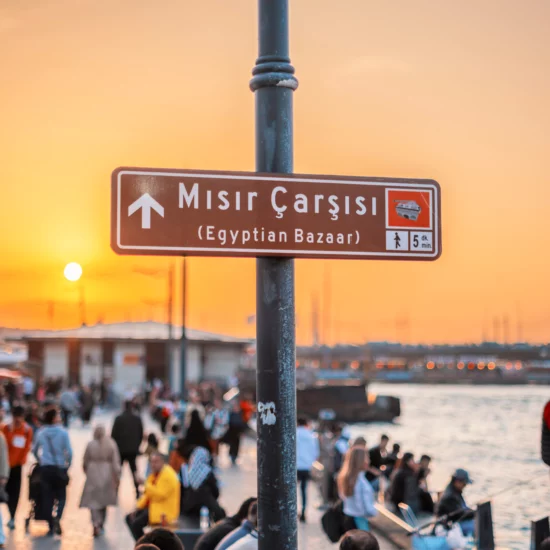


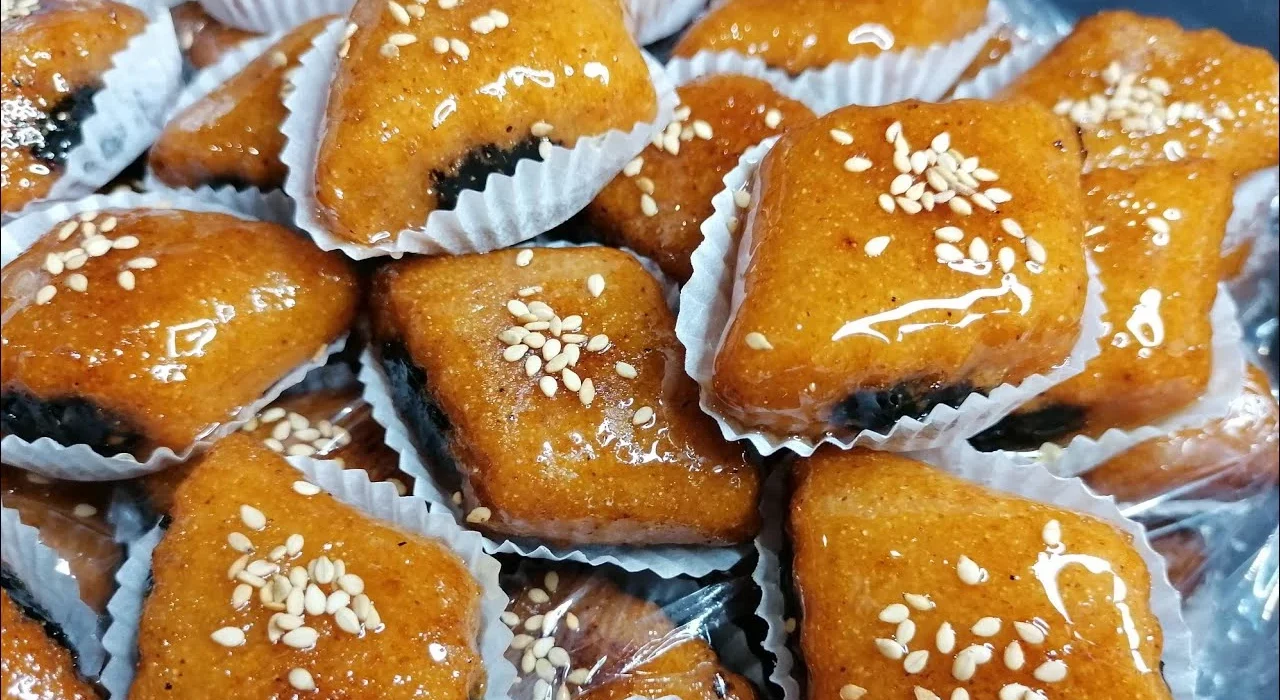
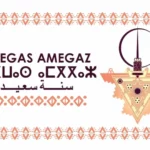
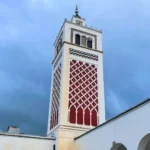
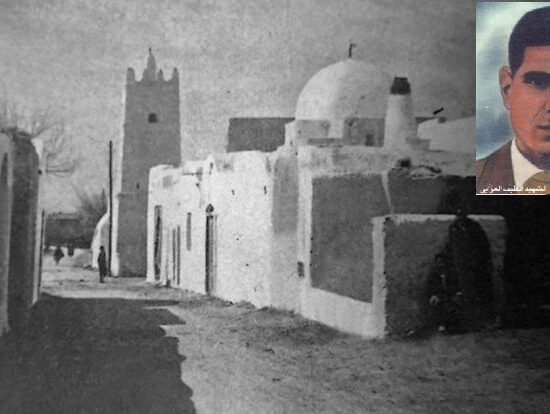
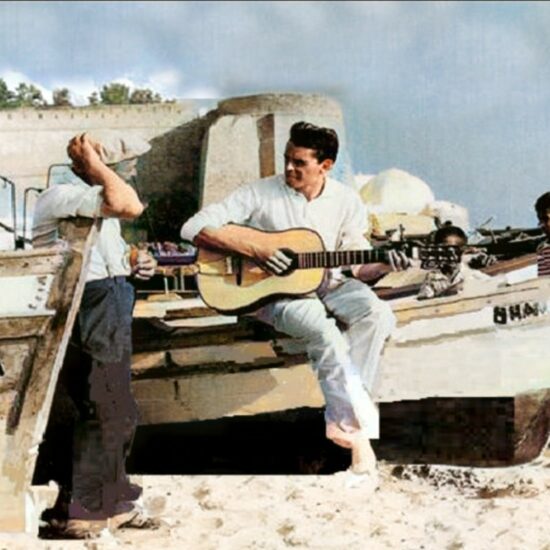
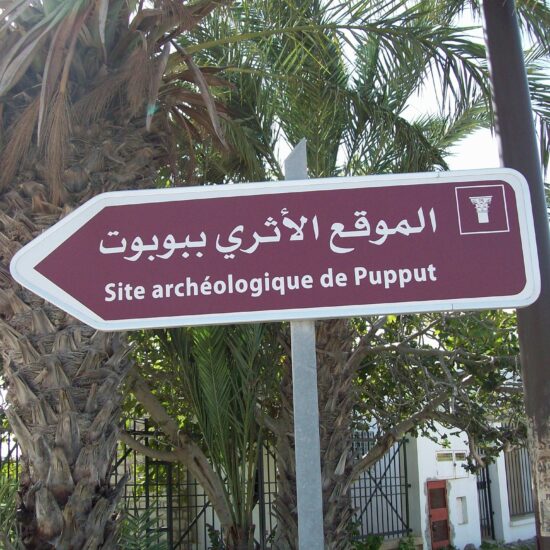
Would love to see more photos and stories about it
So excited to try it next time I visit Tunisia
I wish more people knew that Makroudh is shared across traditions from Mawlid to Ennayer. That’s Tunisia’s true richness!
How It’s Made (Kairouan-Style)
Ingredients:
Coarse semolina
Olive oil or ghee
Ground cinnamon
Date paste with orange blossom water
Honey or sugar syrup for soaking
Method:
Semolina is mixed with oil and a bit of water to form a dough.
A rope of date paste is placed inside the dough, then rolled and flattened.
The roll is cut diagonally to create diamond shapes (makroudh literally means “cut at an angle”).
Traditionally, they are fried to a golden brown, then soaked in warm honey.
Pro tip: Some families bake Makroudh for a lighter version, but the fried one remains the most popular in Kairouan.
Looking forward to your next post! Please keep sharing your perspective and insights. It’s refreshing and much needed in the sea of repetitive content out there. 🙌
Thanks again!
I really like the content